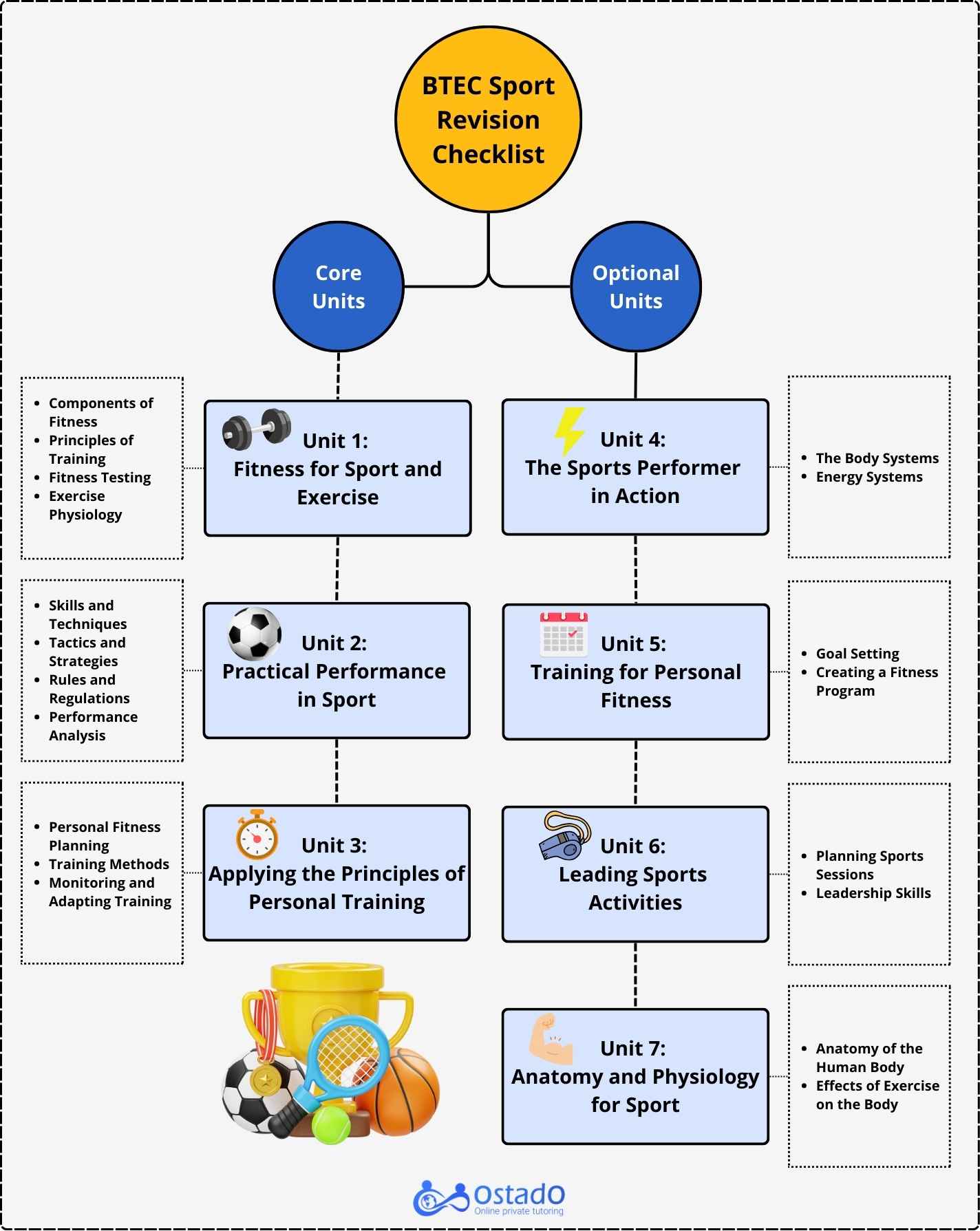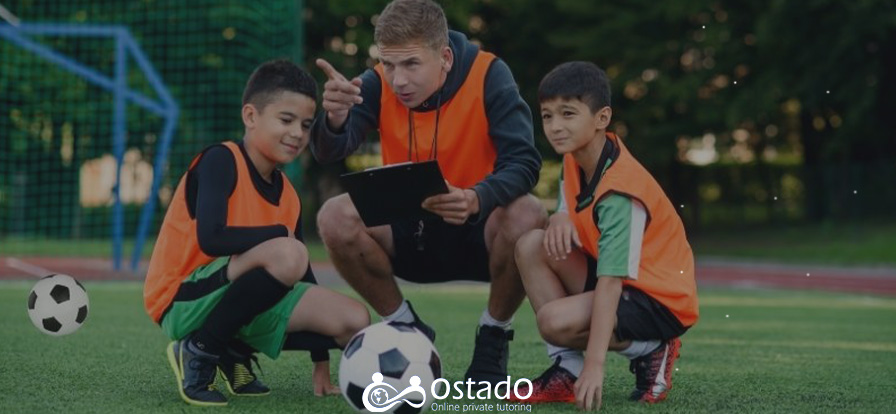For some people, classrooms, libraries, and seminar rooms are tantamount to a small version of hell on earth. These outdoorsy people can’t sit still for long, or they’ll die of boredom. If you can relate to this, the BTEC Tech Award in Sport is a qualification worth considering. But is it completely theory-free? I’m afraid not. But you can try these BTEC Sport GCSE Revision tips to make the theory part less painful. Let’s see how.
Understanding the BTEC Sport
BTEC (Business and Technology Education Council) Sport is a career-focused qualification issued by Pearson (Edexcel). It’s suitable for students who want to find a position in the sports and fitness industry. BTEC Sport qualification is available at different levels:
- BTEC Firsts: It’s equivalent to GCSEs and covers essential topics in sports.
- BTEC Nationals: It’s equivalent to A-levels and dives deeper into sports science. Plus, it’s more creditable for universities and employers.
- BTEC Higher Nationals: It’s the highest level of BTEC Sport qualification, and it’s comparable to the first year of university. Candidates usually obtain the qualification for further studies and career advancement.
The main difference between BTEC Sports and GCSE PE is that the latter focuses more on theory while the former revolves around field experiences. So, if you want to show off your physical abilities, this is your chance to shine.
BTEC Sports Topics Breakdown
The students must study 3 core units which cover the principles of sports science plus four optional units that are chosen by the school or the centre that offers the course. The purpose of optional courses is to give students the opportunity to specialise in a particular area. You can see the topics covered in the BTEC Sports curriculum in the infographic below.

Revise BTEC Sport Like a Pro
Revising for BTEC Sport is different from other revision experiences since your involvement is more physical than theoretical. Here are some unit-specific revision guides to get you to the BTEC Tech Award in Sport.
Also read: Best Apps for GCSE Revision
Unit 1: Fitness for Sport and Exercise
In this unit, you learn about the science of fitness and its components, such as strength, flexibility, and endurance. This unit is assessed through a written exam, so you should study the terms and concepts. You can use BTEC Sports flashcards to learn the concepts effectively. You can also practise past BTEC Sport exam papers to familiarise yourself with the exam-style questions from Unit 1.
- Tip: Try to associate the concepts with real-life examples. For instance, when reading about flexibility, you can research how it affects a gymnast’s performance.
Unit 2: Practical Performance in Sport
In this unit, you’ll be assessed in two sports of your choosing. So, you should work out regularly to prepare your body and practise the techniques of the chosen sports.
- Tip: Create a practice journal and write down details about your performance. For instance, how long does it take you to swim across the pool today? This way, you can monitor your performance and see if you’re making progress.
Unit 3: Applying the Principles of Personal Training
This unit is particularly thrilling because it teaches you how to devise a training plan for people who want to get in shape or need corrective exercise to improve mobility or relieve chronic pain.
- Tip: Start with yourself. Measure your BMI and see if you need to lose/gain weight. Then, make a list of exercises to get in shape. You use training apps to help you make a comprehensive training plan.
General Revision Strategies for BTEC Sport
OK, now that you’re familiar with what the course covers, let’s cover some revision tips that will keep you at the top of your game.
Create a Study Schedule
A study schedule gives you a clear image of what you need to study, how much time it requires, and when you can find the time to do it. In other words, it helps you stay organised and include every topic that needs revision. Click here to access revision timetable templates.
Furthermore, you shouldn’t leave the revision to the last minute. It’s best to start the revision early, but how early? Click on When To Start GCSE Revision to find out.
Employ Active Learning Technique
Revising for Unit 1 doesn’t have to be a dull experience for in-the-field people like you. You can make this more effective by engaging in the revision process. For instance, you can wear your earbuds and go bike riding while listening to BTEC Sport revision podcasts.
You can also teach what you have learnt to make the concepts stick to your mind for a long time and enjoy the company of an avid listener. Everyone likes to learn about fitness and health, so it won’t be hard to find someone with whom to share your knowledge.
Take the Plunge
It’s action time! If you were a book person, you probably would have chosen GCSEs rather than BTECs. So, make yourself busy with your favourite athletic activities; join a soccer team, participate in a marathon, go bike riding, or do anything that keeps your body in its prime.
You can watch videos of professional athletes and observe their moves. What is it that makes them a pro? Try to imitate that. Don’t forget to make safety your number one priority.
Ask for Advice and Feedback
Sports is an intricate subject when you approach it professionally. Anyone can throw a ball, but how one can shoot it in the desired direction with the right speed is something a professional football player knows. So, if you want to advance in this field, you should follow in the footsteps of the pros and seek their advice.
Additionally, if you don’t do the activities and exercises in the correct form, you can easily hurt yourself and ruin your career.
Integrate Technology Into Your Revision
You can keep a journal of your workouts and records in a notebook. You can also modern up and use apps like Strava or MyFitnessPal or keep track of your activities.
In addition, you can use the Coach’s Eye app to record your performance and watch it in slow motion so that you can analyse your movements better.
BTEC Sport GCSE Revision; Last Words
Excelling in BTEC Sport requires good performance both in the classroom and the sports field. So, you should mix things up. When you’re reading about the science of sport, see how it applies to your own porting activities. Also, when you’re practising, try to use the sporting terminology to explain the processes that take place in your body as you practise. That’s how you can become a pro in BTEC Sport.
FAQs - BTEC Sports Revision
- Do universities accept BTEC Sport?Yes, many universities in the UK accept this qualification. However, the BTEC Tech Award in sports has different levels, and you have to check the university's entry requirements to see if they accept the award. Some universities may also require other qualifications like A-levels.
- Which is better, GCSE PE or BTEC Sport?It depends on your preferences. If you're interested in sports science but aren't quite an athlete yourself, GCSE PE is a better choice. However, if you would like to be in the sports field more often than in the classroom, BTEC Sports is the wise choice. If you're unsure about this, talk to the school coach and seek advice.
- Can you do BTEC without GCSE?Yes. BTECs are alternative qualifications to GCSEs, and you can pursue BTECs depending on your career goals.

